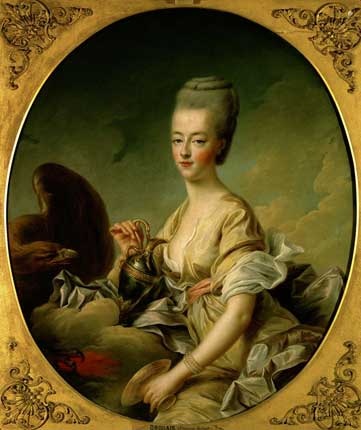Last treasures of the French royal family go under the hammer in Paris
Marie Antoinette's purse will be put up for auction next week by heirs to the Comte de Paris

The last remaining treasures of the French royal family – including a silk purse embroidered by Queen Marie Antoinette in her prison cell – will be auctioned in Paris next week. The objects, including jewellery, paintings, miniatures and furniture, are the remnants of one of the greatest royal fortunes in Europe, diminished first by revolution and, more recently, by scandal. The auction is also the latest chapter in a dispute that broke in 1999 upon the death of the pretender to the French throne, the Comte de Paris.
Among the items expected to generate much interest and excitement is "a royal silk purse" embroidered by Queen Marie Antoinette while she was being held at the Temple Prison in 1792. The ivory coloured purse, which is embroidered with roses, includes a copy of the last letter written by the queen, to her sister-in-law, Madame Elisabeth, dated 16 October 1793.
In the celebrated final letter, written just hours before her execution in what is now the Place de la Concorde, Marie Antoinette, by then a wizened woman of 48, wrote: "I pardon my enemies the wrongs that they have done me ... I also had friends ... Let them know that, to my last moment, I was thinking of them."
The purse has been estimated to be worth about €15,000 (£12,000). Also up for auction is the quill used by King Louis Philippe to sign the act of abdication in 1848, and rosary beads belonging to his wife, Queen Marié-Amelie, with a much more affordable price tag of €300-€500.
The artefacts, which will be auctioned at Christie's, are mostly from the Parisian apartment of the late Count and Countess of Paris, and are being sold by their nine children and one nephew in an attempt to replenish family funds depleted by their father.
The late Count of Paris, a longtime Orleaniste pretender to the French throne, tarnished the royalist claim by running off with his mistress and dispersing the family fortune. He had inherited a fortune worth €200m (£138m) but when he died in 1999, he left behind a rather nasty surprise for his children.
Having grown up in what he believed to be one of the richest families in Europe, Prince Henri d'Orléans, eldest son of the Count, was shocked to discover the family fortune reduced to a mere €12.2m, calling it a "catastrophic situation".
Three years after the Count's death, he brought a complaint before a Paris judge to try to establish the reason for such a dramatic loss of inheritance. Henri d'Orléans explained at the time that he wished to "demand justice and put things back the way they should be".
His lawyers were unsuccessful, however, in tracing millions of euros withdrawn by his father in the years before his death The inquest did manage to shed some light on the financial side of the Count's relationship with his former nurse, Monique Friese, with whom he lived with for 20 years before his death. She is accused by five of his children of having "unduly benefited" from their father's wealth. That charge mostly stems from the Count's purchase of a house for his mistress and the subsequent funds that he spent on upgrading and furnishing the property.
The family is just one of the claimants to the throne, tracing its lineage back to Louis XVI. The Orleanistes, as they are known, are the best documented pretenders, claiming to be descended directly from the last French king, Louis Philippe (1830-1848) and the brother of Louis XVI, who was guillotined along with Marie Antoinette and their only son during the Revolution. Although there are other rival claimants to the throne, the Orleans family has generally been accepted by most French royalists as the most legitimate.
Ironically, it was the obscene expenditure and opulent lifestyle of the last court at Versailles that led in part to the French Revolution of 1789 and the abolition of the monarchy in favour of a republic, although it was later reinstated before being finally axed for good.
Next week's auction of 500 lots is valued at a modest €1m – a far cry from the luxury of years gone by.
Join our commenting forum
Join thought-provoking conversations, follow other Independent readers and see their replies
Comments